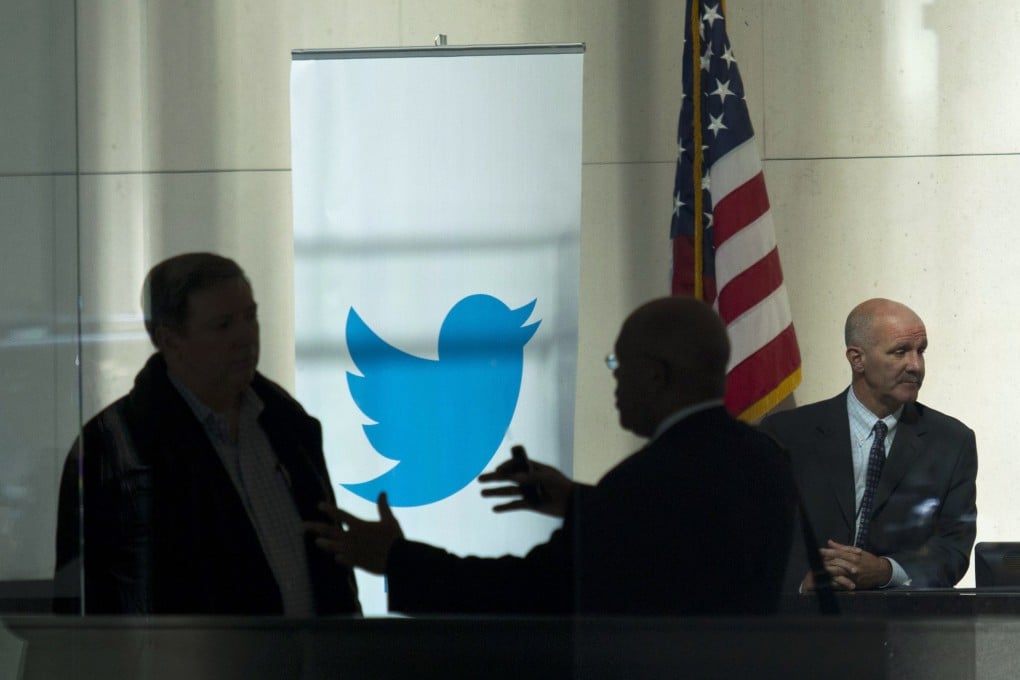
Twitter seems to be avoiding Facebook’s overreach - so far. The microblogging site’s provisional pricing for its initial public offering is US$17 to US$20 a share. Calculations suggest that’s modest by the metrics available, though without profit these require a leap of faith. At least Twitter seems to be avoiding the premature heights of Facebook’s flawed debut last year.
Even at the top of the range, the company’s fully diluted market capitalisation with 670 million odd shares - a bit north of US$13 billion - appears relatively justifiable.
Take Facebook, LinkedIn and China’s Sina and Tencent. Assume they ramp up their top lines in the next 12 months at the same pace as in the last four reported quarters, and the average ratio of enterprise value to sales is just shy of 11 times. Apply that to faster-growing Twitter on the same basis and adjust for cash, and its market value comes out just above US$15 billion or towards US$23 a share.
Knock off a 10 per cent IPO discount and US$20 looks on the money - all the more so when eliminating the two Chinese companies, so that the only comparisons are the more richly valued Facebook and LinkedIn, which boosts Twitter’s worth by US$5 billion. Apply the above US$100 average value per monthly user that investors attribute to Facebook and LinkedIn rather than a multiple of sales and Twitter’s valuation goes higher still.
That said, Twitter can’t claim to be profitable, as Facebook was when it debuted, and there are questions over whether its broadcast model has the reach or moneymaking possibilities of the social network created by Mark Zuckerberg or the per-user potential of more specialized LinkedIn. Moreover, Twitter and its advisers will be keen to avoid the share price plunge that followed Facebook’s IPO at a toppy valuation above US$100 billion.
Twitter valued itself internally at US$20.62 a share as recently as early September. So bosses and staff would love to see it hit the market at a higher price than that. But they’ll also want to see the price pop sustainably higher - though perhaps not too much right away - once the shares start trading. With a whiff of bubbly sentiment permeating the tech arena, the challenge may be keeping IPO investors’ enthusiasm in check.
